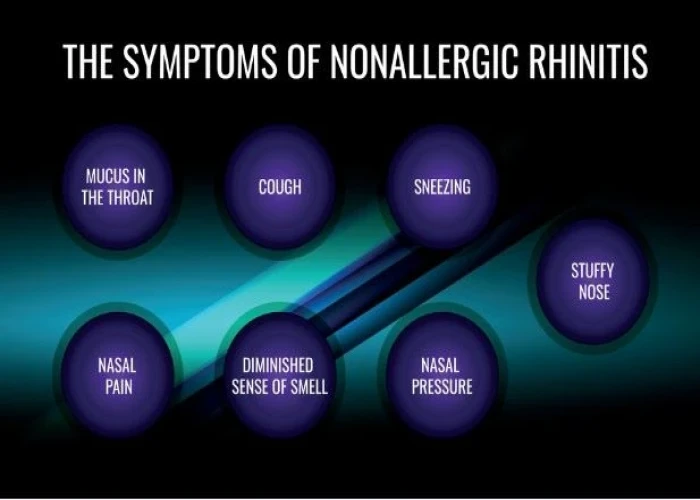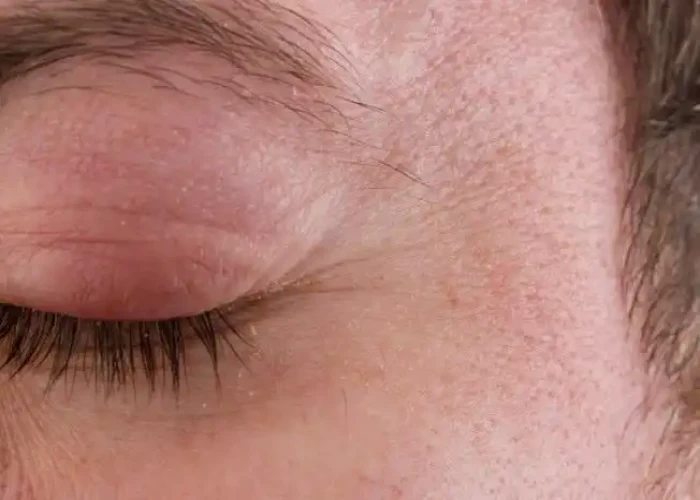 Welcome
Welcome
“May all be happy, may all be healed, may all be at peace and may no one ever suffer."
Sore throat

A sore throat is a common condition that is typically characterized by pain, discomfort, or irritation in the throat. It can be caused by a variety of factors, including viral or bacterial infections, allergies, dry air, and acid reflux.
The symptoms of a sore throat may include pain or discomfort in the throat, difficulty swallowing, redness or swelling of the tonsils, and hoarseness. In some cases, there may also be other symptoms such as coughing, fever, or body aches.
Treatment for a sore throat depends on the underlying cause. If the sore throat is caused by a viral infection, treatment typically involves rest, staying hydrated, and using over-the-counter pain relievers such as acetaminophen or ibuprofen to manage pain and fever. If the sore throat is caused by a bacterial infection, antibiotics may be necessary. For sore throats caused by allergies, antihistamines or other allergy medications may be recommended.
Home remedies such as gargling with salt water, drinking warm liquids, and using throat lozenges or sprays may also help to alleviate symptoms of a sore throat.
If you experience a sore throat that is severe, lasts for more than a week, or is accompanied by other symptoms such as difficulty breathing, difficulty swallowing, or a high fever, it is important to seek medical attention for further evaluation and treatment.
Research Papers
Disease Signs and Symptoms
- Throat pain
- Headaches
- Frequent sneezing
- Runny nose
- Cough
- Fever
- Inflamed or swollen tonsils
- Swollen jaw
- Swollen neck
- Swollen glands
- Swollen throat
- Sore throat
- Nausea or vomiting
Disease Causes
Sore throat
Viruses that cause the common cold and the flu also cause most sore throats. Less often, bacterial infections cause sore throats.
Viral infections
Viral illnesses that cause a sore throat include:
- Common cold
- Flu (influenza)
- Mono (mononucleosis)
- Measles
- Chickenpox
- Coronavirus disease 2019 (COVID-19)
- Croup — a common childhood illness characterized by a harsh, barking cough
Bacterial infections
Many bacterial infections can cause a sore throat. The most common is Streptococcus pyogenes (group A streptococcus) which causes strep throat.
Other causes
Other causes of a sore throat include:
- Allergies. Allergies to pet dander, molds, dust and pollen can cause a sore throat. The problem may be complicated by postnasal drip, which can irritate and inflame the throat.
- Dryness. Dry indoor air can make your throat feel rough and scratchy. Breathing through your mouth — often because of chronic nasal congestion — also can cause a dry, sore throat.
- Irritants. Outdoor air pollution and indoor pollution such as tobacco smoke or chemicals can cause a chronic sore throat. Chewing tobacco, drinking alcohol and eating spicy foods also can irritate your throat.
- Muscle strain. You can strain muscles in your throat by yelling, talking loudly or talking for long periods without rest.
- Gastroesophageal reflux disease (GERD). GERD is a digestive system disorder in which stomach acids back up in the food pipe (esophagus).
- Other signs or symptoms may include heartburn, hoarseness, regurgitation of stomach contents and the sensation of a lump in your throat.
- HIV infection. A sore throat and other flu-like symptoms sometimes appear early after someone is infected with HIV.
- Also, someone who is HIV-positive might have a chronic or recurring sore throat due to a fungal infection called oral thrush or due to a viral infection called cytomegalovirus (CMV), which can be serious in people with compromised immune systems.
- Tumors. Cancerous tumors of the throat, tongue or voice box (larynx) can cause a sore throat. Other signs or symptoms may include hoarseness, difficulty swallowing, noisy breathing, a lump in the neck, and blood in saliva or phlegm.
Rarely, an infected area of tissue (abscess) in the throat or swelling of the small cartilage "lid" that covers the windpipe (epiglottitis) can cause a sore throat. Both can block the airway, creating a medical emergency.
Disease Prevents
Sore throat
The best way to prevent sore throats is to avoid the germs that cause them and practice good hygiene. Follow these tips and teach your child to do the same:
- Wash your hands thoroughly and frequently for at least 20 seconds, especially after using the toilet, before and after eating, and after sneezing or coughing.
- Avoid touching your face. Avoid touching your eyes, nose or mouth.
- Avoid sharing food, drinking glasses or utensils.
- Cough or sneeze into a tissue and throw it away, and then wash your hands. When necessary, sneeze into your elbow.
- Use alcohol-based hand sanitizers as an alternative to washing hands when soap and water aren't available.
- Avoid touching public phones or drinking fountains with your mouth.
- Regularly clean and disinfect phones, doorknobs, light switches, remotes and computer keyboards. When you travel, clean phones, light switches and remotes in your hotel room.
- Avoid close contact with people who are sick or have symptoms.
Disease Treatments
A sore throat caused by a viral infection usually lasts five to seven days and doesn't usually require medical treatment. Antibiotics don't help treat a viral infection.
To ease pain and fever, many people turn to acetaminophen (Tylenol, others) or other mild pain relievers.
Consider giving your child over-the-counter pain medications designed for infants or children, such as acetaminophen (Children's Tylenol, FeverAll, others) or ibuprofen (Children's Advil, Children's Motrin, others), to ease symptoms.
Never give aspirin to children or teenagers because it has been linked to Reye's syndrome, a rare but potentially life-threatening condition that causes swelling in the liver and brain.
Treating bacterial infections
If your or your child's sore throat is caused by a bacterial infection, your doctor or pediatrician will prescribe antibiotics.
You or your child must take the full course of antibiotics as prescribed even if the symptoms are gone. Failure to take all of the medication as directed can result in the infection worsening or spreading to other parts of the body.
Not completing the full course of antibiotics to treat strep throat can increase a child's risk of rheumatic fever or serious kidney inflammation.
Talk to your doctor or pharmacist about what to do if you forget a dose.
Other treatments
If a sore throat is a symptom of a condition other than a viral or bacterial infection, other treatments will likely be considered depending on the diagnosis.
Disease Diagnoses
Disease Allopathic Generics
-
Chlorpheniramine Maleate
Antihistamines should be given.
1 pill 3 times a day or 1/2 teaspoon of syrup 3 times a day.
-
Pheniramine Maleate
1 pill 3 times a day. Half, 1 spoon 3 times a day.
-
Mebhydrolin Napadisylate
1/2 pill 3 times a day.
-
Cetirizine Hydrochloride
0+0+1.
-
Levocetirizine Dihydrochloride
0+0+1 (15 days).
-
Tetracycline Hydrochloride (Oral)
1/2 capsule 4 times a day at night (7 days).
-
Oxytetracycline
1/2 capsule 4 times a day at night (7 days).
-
Cloxacillin Sodium
1 capsule every 6 hours (5-7 days). Or syrup 1/2 spoon 4 times a day and night (5-7 days).
-
Flucloxacillin Sodium
1 every 6/8 hours for 7 days. Syrup 1/2 tsp.
-
Doxycycline Hydrochloride
Take 1 capsule 2 times a day.
-
Cotrimoxazole
Full 2 pills morning 2 pills evening 5-7 days or DS 1+0+1.
-
Cephradine
1 250 mg capsule 3/4 times a day according to age. Or syrup 1/2 spoon 3/4 times a day and night. 500mg 1+0+1 or 1+1+1.
-
Azithromycin Dihydrate
500mg 1 time per day for 3/5 days. 1 tablet 250 mg daily for 5 days.
-
Ofloxacin (Oral & Injection)
1 pill of 200 mg in the morning and 1 pill at night for 7 days.
-
Paracetamol
1 pill or 1 spoon 3 times a day.
-
Pseudoephedrine + Guaiphenasine + Triprolidine
Adults 2 spoons 3 times a day.
Disease Ayurvedic Generics
Disease Homeopathic Generics
Disease yoga
Sore throat and Learn More about Diseases

REM sleep behavior disorder

Liver hemangioma

Growing pains

Nonallergic rhinitis

Spinal cord tumor

Trachoma

Whiplash

Yeast infection (vaginal)
sore throat, গলা ব্যথা
To be happy, beautiful, healthy, wealthy, hale and long-lived stay with DM3S.
